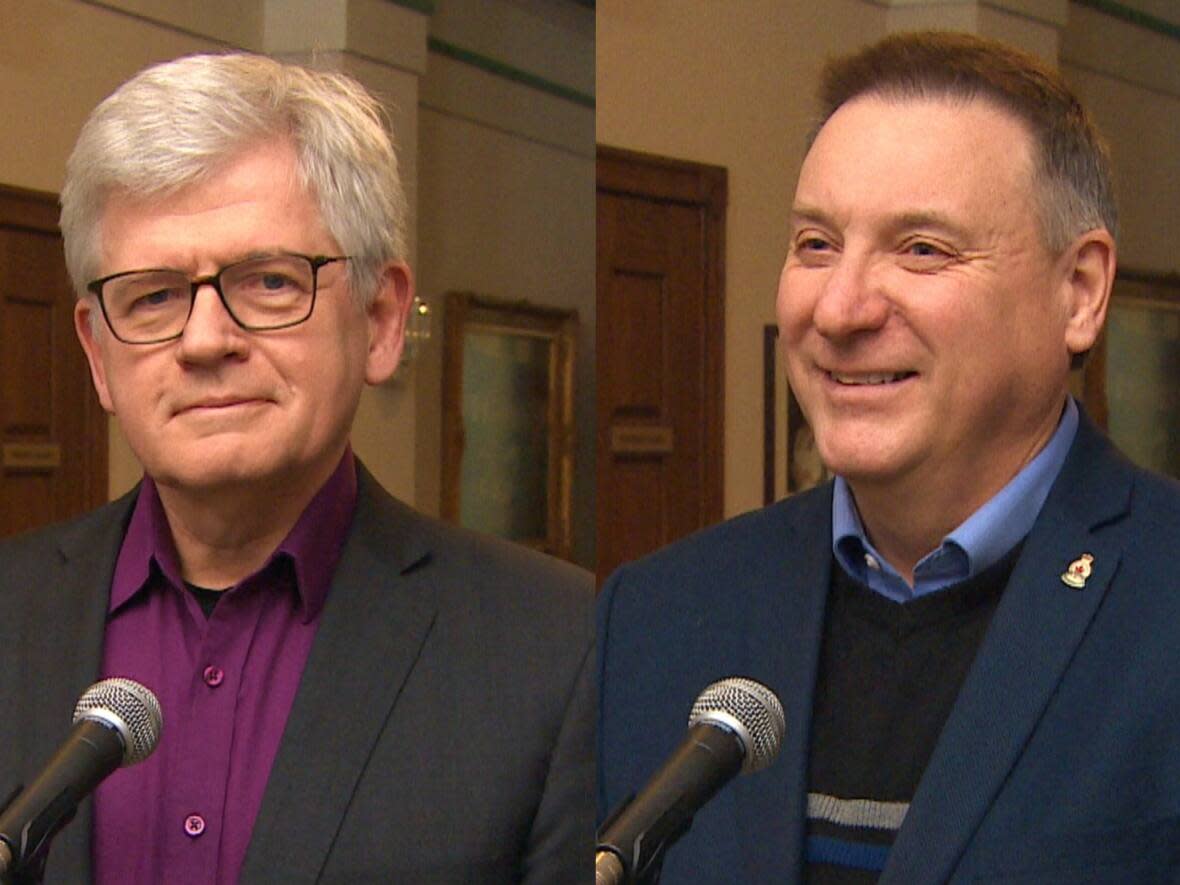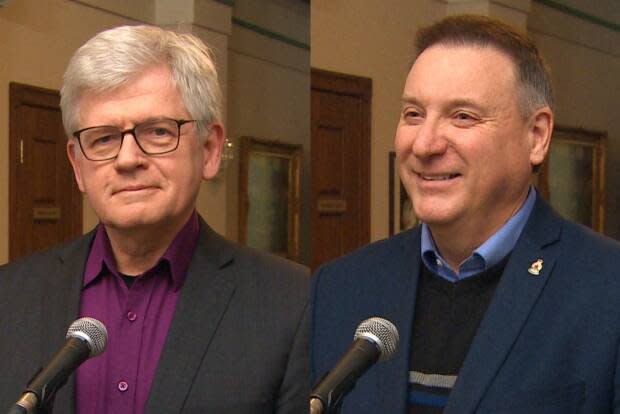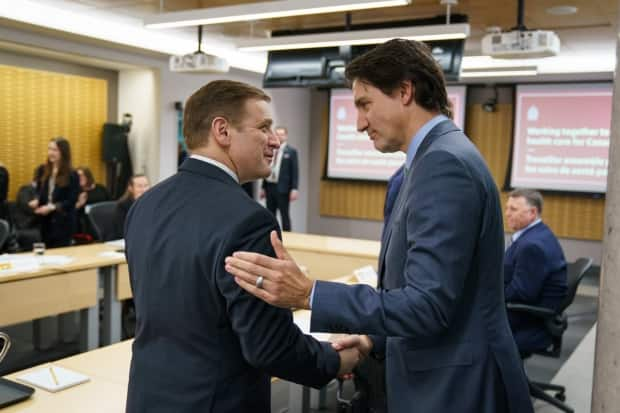With a federal health-care proposal on the table, N.L.'s opposition parties weigh in


Ottawa's proposed 10-year multibillion-dollar health-care package, announced Tuesday, should be the beginning of the conversation, not the end, says PC Opposition leader David Brazil.
Brazil said Wednesday he has a "lot of questions" about the $196-billion pitch from Prime Minister Justin Trudeau that would see an immediate injection of new cash for Canada's provinces and territories to use to combat health-care system challenges.
"Any influx in additional monies is welcomed but obviously, as the premiers have outlined, too, it's nowhere near where they thought the decision and the partnership would be developed. It's nowhere near what they said was necessary."
Hours after the proposition was made public, Newfoundland and Labrador Premier Andrew Furey said he thinks "there are some really big wins" for the province in it, but Brazil said that's not evident.
"We said over the last number of months that whatever approach is to be used in Newfoundland and Labrador, and the partnership, has to be built on the principle that we need a made-in-Newfoundland-and-Labrador solution to health care," he said.
"The demographics here, the geographics, the chronic disease challenges that we have here, the aging population, all dictate that we need to have a different approach and the freedom to be creative in how we address health-care needs."
On Monday, Furey said more money is needed to fully implement the province's Health Accord plan.
The federal government has said that while the new health deal outlined four areas in which it expects the money to be used — expanding access to rural family health services, reducing backlogs, improving mental health services and modernizing the system — it's giving flexibility to each jurisdiction.
Provincial and territorial governments would be required to develop plans to explain how the funding will be spent and how progress will be measured. The money from bilateral deals, of which Newfoundland and Labrador could expect about $850 million, exists to address the "unique needs" of each province and territory with geography and population in mind, according to the proposal.

"Right now it's a good first step," Brazil said. "But if this is the only step that's going to be taken, we're in trouble when it comes to delivering proper health care in Newfoundland and Labrador. This doesn't do very much right now, as we see it, to help the 136,000 Newfoundlanders and Labradorians who don't have access to a family health physician."
Furey said Tuesday the money in the federal proposal isn't the figure premiers were looking for but he added having cash available immediately would be good for the province.
But interim NDP Leader Jim Dinn said he wonders if the fast cash would actually be enough to fix anything quickly.
"Is it going to be enough to reduce the wait-lists of people currently without a doctor — 136,000? Is it going to be enough to get the collaborative-care clinics up and running?" He said.
"Is it going to be enough to make sure that we have an ambulance system that is going to be adequate for everyone in this province regardless of their geography, where they live or the population?"
Dinn said the NDP has been calling for a comprehensive human resources plan to see where health-care staff are actually needed across the province.
"What are we doing to actually reduce the causes of people having to rely on the health-care system in the first place? Those are the things we are looking for," he said.
"Any investment in health is going to be good. What we're going to be continuing to ask for is where are we, not only in terms of the collaborative-care clinics, primary health care, the hospitals, the ambulance system and the other measures, but what are we going to do to address those social determinants of health?"


